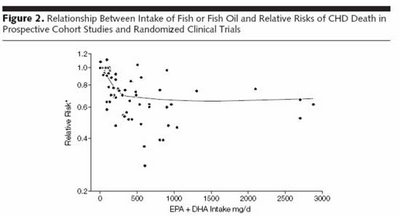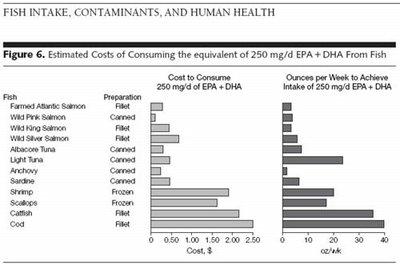
Dominic says Alex Coleman does not believe the god bits in the Bible - but he does believe in the morality. So are religious texts the root of all human morals? No!
In New Scientist (14 October 2006, pg 60) Frans de Waal argues that animals have an inbuilt sense of fair play and show compassion to others in their group.
Emotions nudge an organism towards rapid decisions based on millions of years of evolution, and provide a window on behavioural adaptation. This even holds for human morality.
If it is true that morality is reasoned from abstract principles, why do our judgements often come instantly? We often make snap moral judgements that seem to come from the "gut".
I don't claim that monkeys and apes are moral beings, but I do believe that human morality is on a continuum with animal sociality. Charles Darwin saw it this way. In The Descent of Man he wrote: "Any animal whatever, endowed with well-marked social instincts... would inevitably acquire a moral sense or conscience, as soon as its intellectual powers had become as well developed, or nearly as well developed, as in man."
It is not hard to recognise the two pillars of human morality in the behaviour of other animals. These pillars are elegantly summed up in the golden rule that transcends the world's cultures and religions: "Do unto others as you would have them do unto you." This unites empathy (attention to another's feelings) with reciprocity (if others follow the same rule, you too will be treated well). Human morality as we know it is unthinkable without empathy and reciprocity.
These tendencies are widespread in other primates, too. For example, it is not uncommon that, after one chimpanzee has attacked another, a bystander will go over to embrace the victim. We have documented hundreds of cases. The usual effect of such consolation is that the screaming, yelping and other signs of distress stop. In fact, the tendency to reassure others is so strong that Nadia Ladygina-Kohts, a Russian scientist who raised a juvenile chimp a century ago, said that if her charge escaped to the roof of her house, holding out food would not make him come down. The only way was to sit and sob as if she were in pain, whereupon the young ape would rush down to put an arm around her, a worried expression on his face. This attests to the power of the empathic tendency in our close relatives: it beats the desire for a banana.
”It is not uncommon after one chimp has attacked another for a bystander to embrace the victim
Reciprocity can be seen in our own experiments on captive chimpanzees when we give an individual food to divide with others. Before doing so, we measure spontaneous grooming: who grooms whom for how long. Grooming is a pleasurable, relaxing activity, and being groomed is much appreciated. We found that if one chimpanzee had groomed another, this greatly improved his chances of getting a share of the food from the groomee. In other words, chimpanzees remember who has groomed them, and return the favour later. Like humans, they seem to keep track of incoming and outgoing services.
Humans enforce social norms that dictate how we treat others and promote communal interests, but at morality's core we find an ancient primate psychology. This is quite different from the idea that morality goes against human nature, a view I dub "veneer theory". Veneer theorists argue that our moral lives are a thin crust that barely covers our inborn nastiness and selfishness: the only reason we act morally is to avoid punishment and impress each other. For three decades, this curiously non-evolutionary explanation has been promoted by biologists and science writers alike. It is best captured in the quip by biologist Michael Ghiselin from the California Academy of Sciences: "Scratch an 'altruist', and watch a 'hypocrite' bleed."
One of the momentous developments of our time is the effort to wrest morality from Kantian philosophy and put it back in touch with evolution. This effort is not only supported by studies of cooperative behaviour among animals but also by modern neuroscience. Whereas veneer theory attributes moral problem-solving to the latest additions to our brain such as the prefrontal cortex, imaging human brains has shown that moral dilemmas activate a wide variety of areas, some of them present in all mammals and closely tied to the emotions. Recent research at McGill University in Montreal, Canada, shows that empathy may exist in mice - which only goes to show how old these tendencies may be.
There is also continuity between humans and animals when it comes to social rules. When Sarah Brosnan in the Yerkes National Primate Research Center in Atlanta, Georgia, divided rewards, she found that monkeys had a crude sense of fairness. One monkey will throw away a perfectly fine reward that she normally relishes if she sees her companion getting an even better one. By investigating the expectations primates hold about each other, we may find we are not alone in judging some social situations to be unacceptable.
To show that even social rule enforcement is not beyond non-human animals, let me recount a fascinating situation that I witnessed years ago at Arnhem Zoo in the Netherlands. One balmy evening, when the keeper called the large chimpanzee colony inside, two adolescent females refused to enter the building. The weather was superb, they had the whole island to themselves and were loving it. The zoo's rule was that none of the apes would get fed until they had all moved inside. The obstinate teenagers threw the rest of the group into a grumpy mood. When they finally came in, they were assigned a separate bedroom by the keeper to prevent reprisals.
This protected them only temporarily, though. The next morning, out on the island, the entire colony vented its frustration about the delayed meal by a mass pursuit ending in a beating for the culprits. That evening, the same two females were the first to come in.
More... Primates and Philosophers: How Morality Evolved by Frans De Waal



















